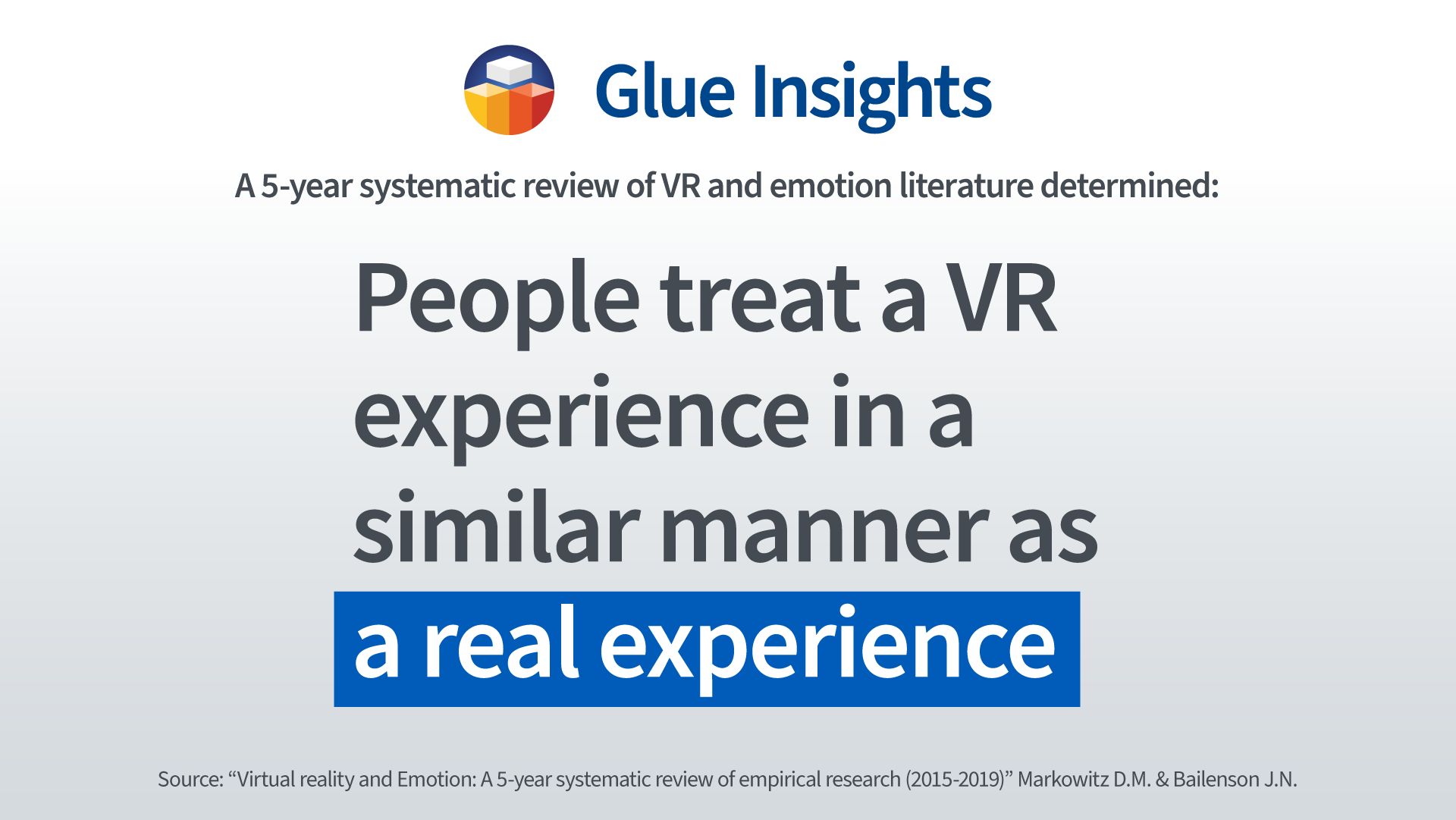People treat VR experiences similarly as real experiences.
That is one of the key conclusions from a 5-year systematic review of VR and emotion literature done by Markowitz, D. M., & Bailenson, J.N.
They reviewed the state of immersive VR and emotion research across 72 studies and three categories of investigation including (1) emotion regulation, (2) emotions as mechanisms for psychological phenomena and (3) studies focused on emotion theory.
Based on the studies done in this field, the review states that due to VR providing high-fidelity sensory information, the brain often treats a virtual experience in a similar manner to a real experience.
This can have important implications for how we think about people, interactions with technology, and the role of VR mediation in social and psychological processes.
Rich sensory information truly provides the ingredients for true presence and immersion in VR, which enhance the emotional intensity of an experience making people feel like they are part of the virtual world. That’s why VR meetings, workshops, and training are highly engaging and impactful.
We believe that this connection between VR and emotions allows us to benefit from the technology in business settings. Learn more about other VR use cases for business.
Source: Virtual Reality and Emotion: A 5-Year Systematic Review of Empirical Research (2015-2019)



